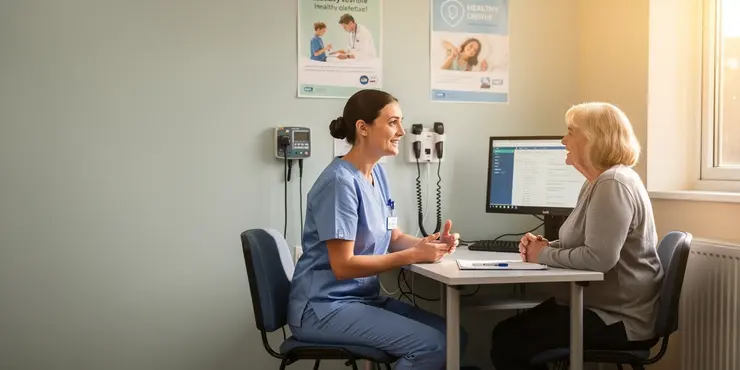
Find Help
More Items From Ergsy search
-
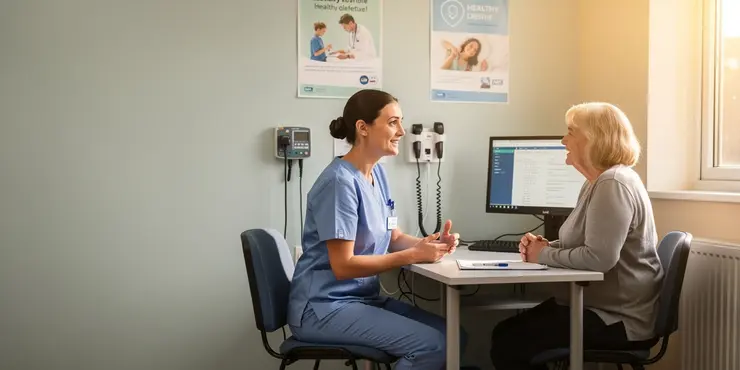
Can weight loss improve sleep apnea?
Relevance: 100%
-
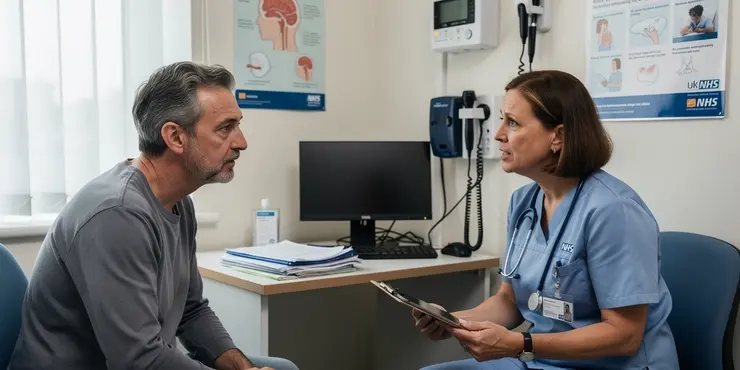
What is sleep apnea?
Relevance: 79%
-

What is sleep apnoea?
Relevance: 78%
-
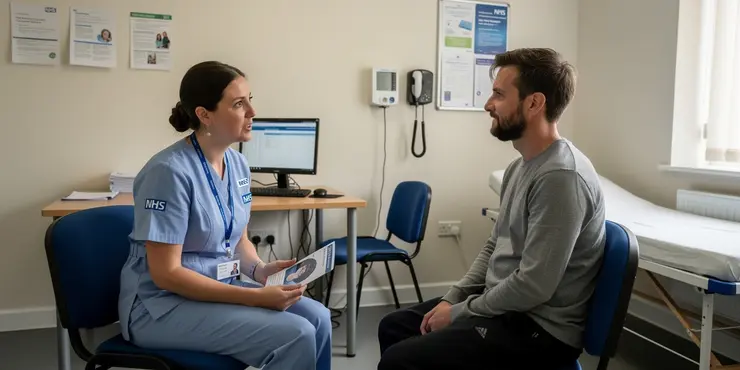
Is CPAP the only treatment for sleep apnea?
Relevance: 75%
-
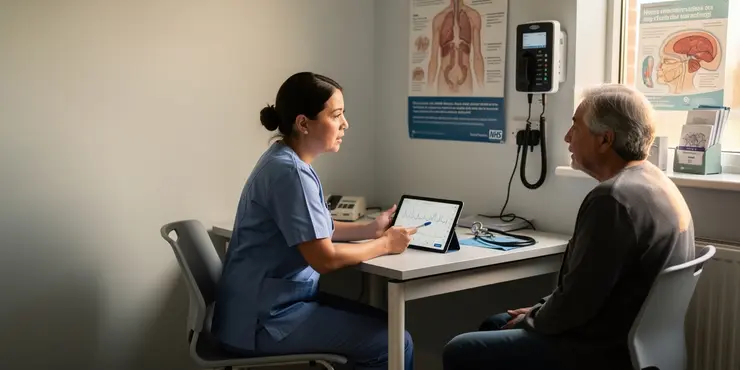
Can sleep apnea be cured?
Relevance: 75%
-
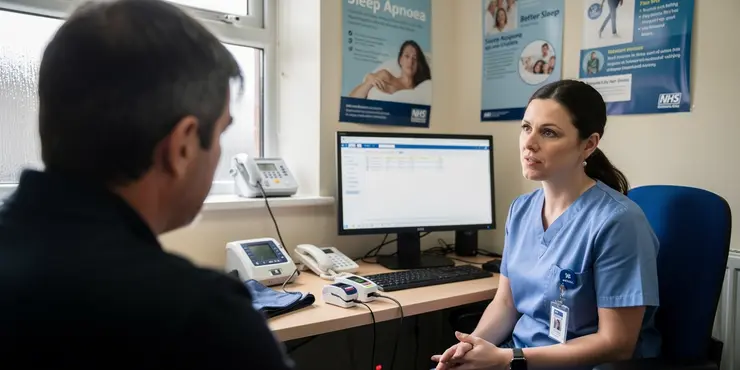
How common is sleep apnea?
Relevance: 75%
-
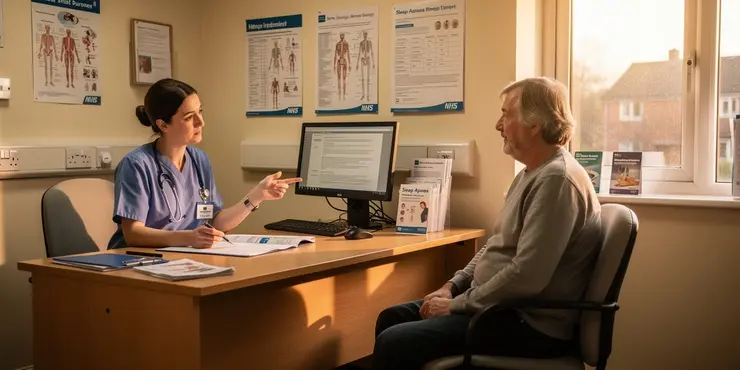
What treatments are available for sleep apnea?
Relevance: 74%
-
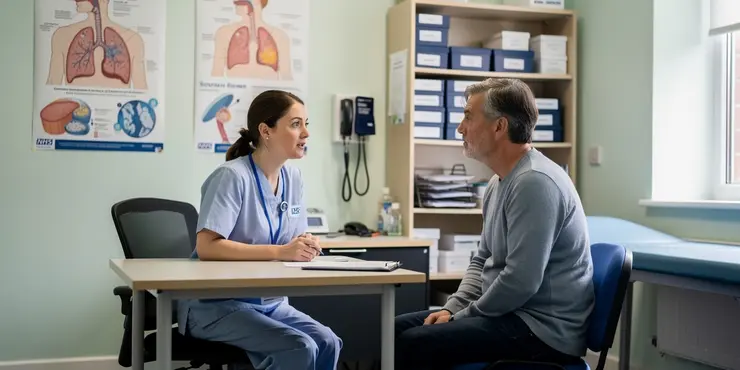
Is snoring always a sign of sleep apnea?
Relevance: 71%
-
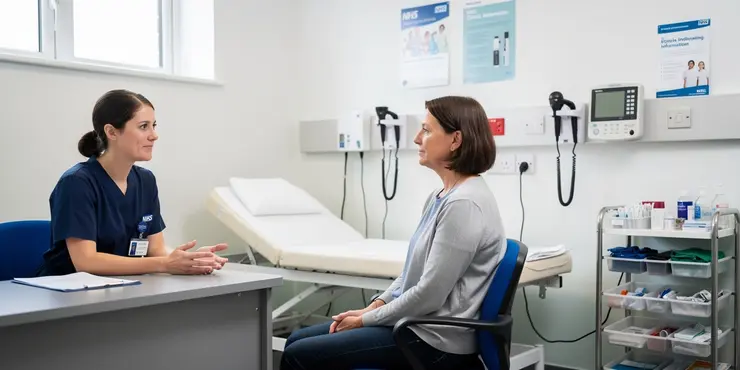
What is complex sleep apnea syndrome?
Relevance: 71%
-

What is complex sleep apnea syndrome?
Relevance: 69%
-
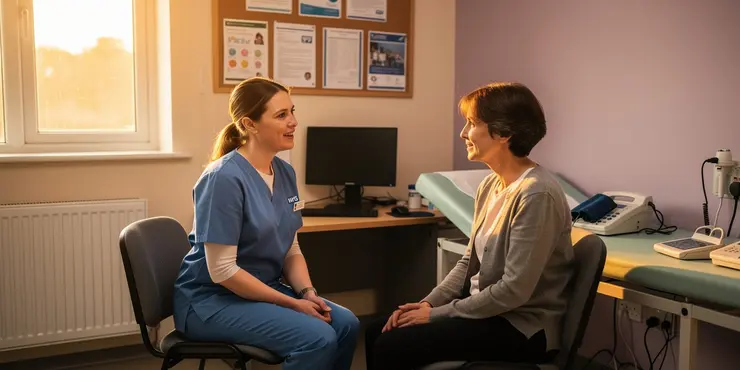
Why is sleep apnea dangerous?
Relevance: 69%
-
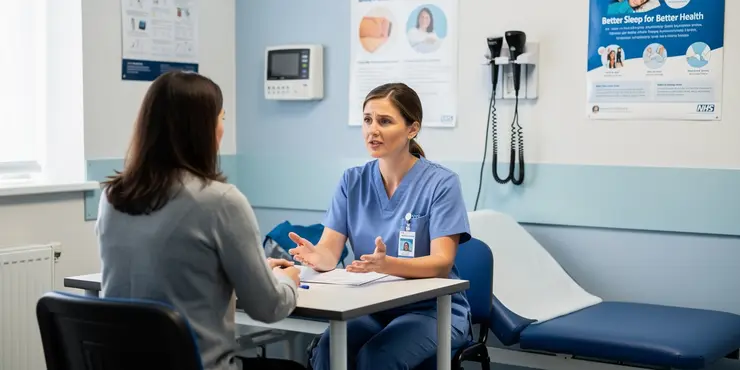
Can alcohol worsen sleep apnea?
Relevance: 69%
-
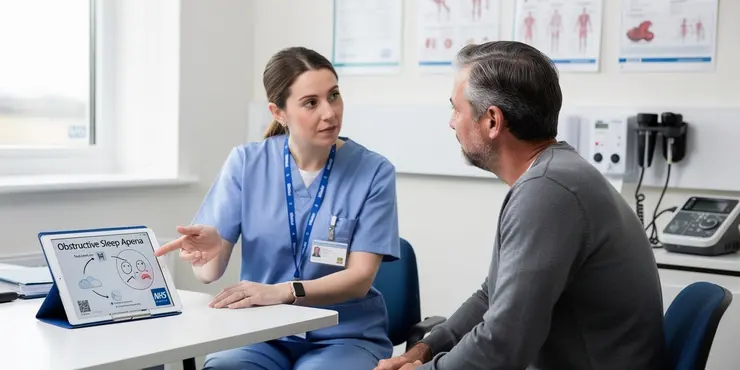
What causes obstructive sleep apnea?
Relevance: 68%
-
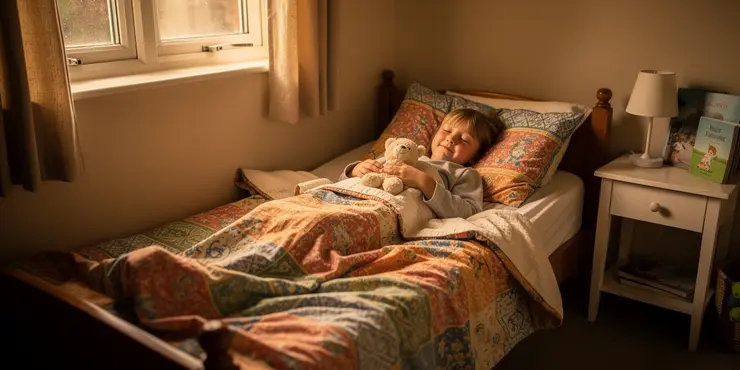
Can children have sleep apnea?
Relevance: 68%
-

What lifestyle changes can help manage sleep apnea?
Relevance: 68%
-
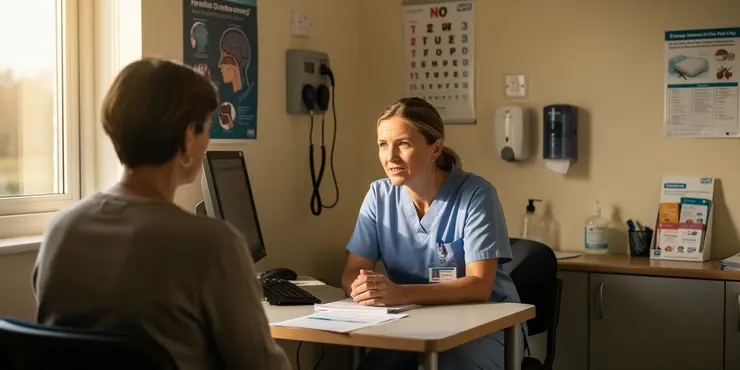
Does sleep apnea occur only in adults?
Relevance: 68%
-
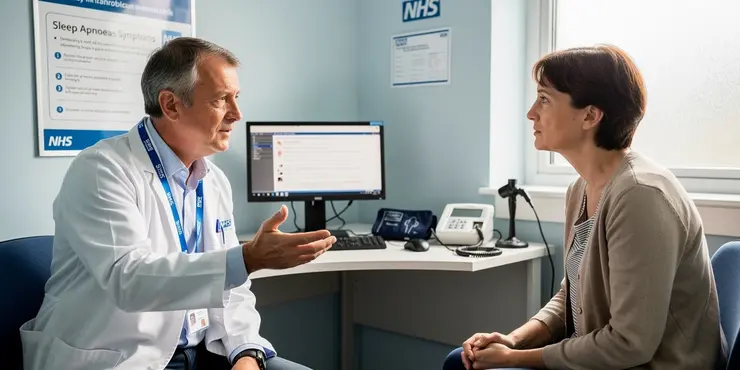
What are common symptoms of sleep apnea?
Relevance: 67%
-
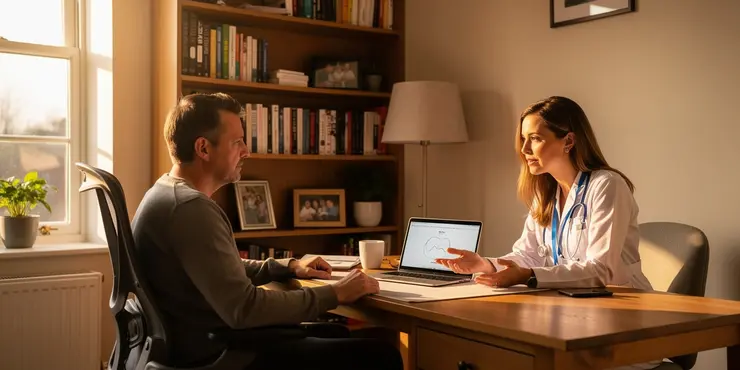
How is sleep apnea diagnosed?
Relevance: 67%
-
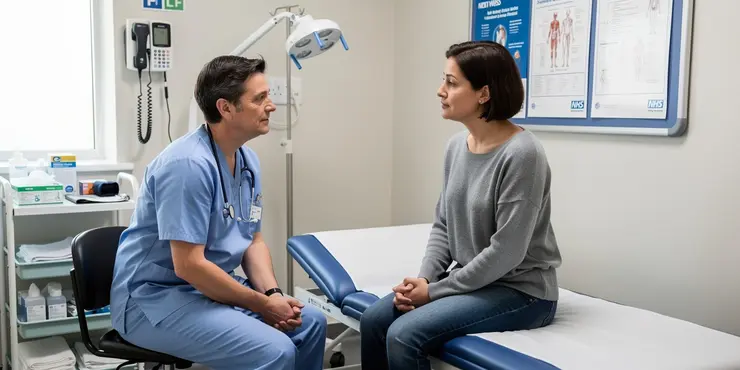
What should I do if I suspect I have sleep apnea?
Relevance: 67%
-

What are the main types of sleep apnea?
Relevance: 66%
-

What are risk factors for developing sleep apnea?
Relevance: 66%
-
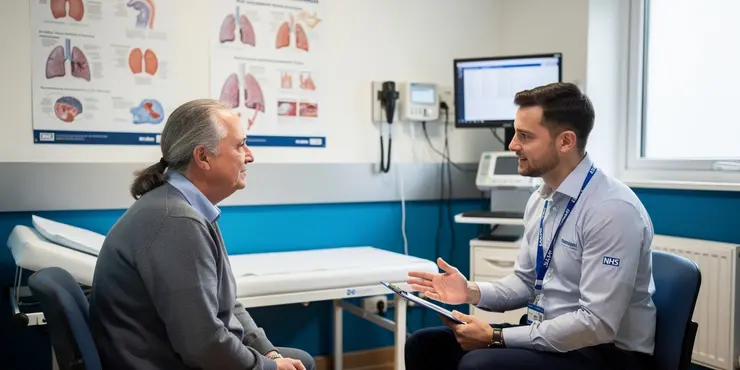
Am I eligible to try the new sleep apnea chip?
Relevance: 61%
-

How does the new Sleep Apnea Chip work?
Relevance: 59%
-

Weight Loss Surgery
Relevance: 56%
-
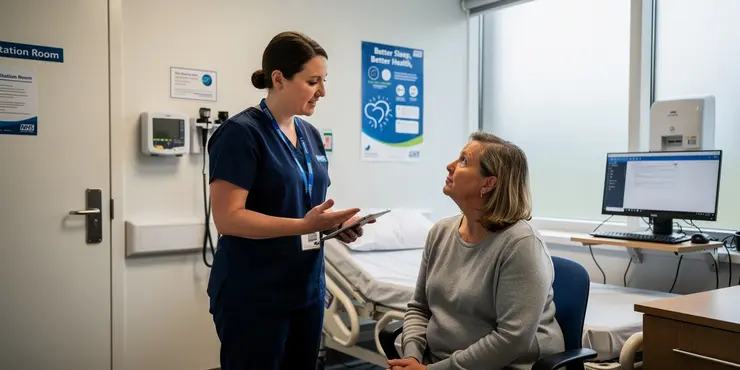
Introduction to obstructive sleep apnoea
Relevance: 50%
-

Evidence-Based Interventions: snoring surgery in the absence of Obstructive Sleep Apnoea (OSA)
Relevance: 46%
-
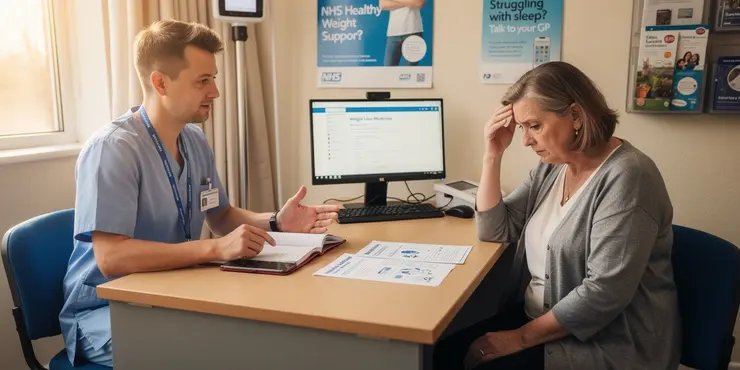
Is insomnia a common side effect of weight loss drugs?
Relevance: 46%
-

What are common side effects of weight loss drugs?
Relevance: 44%
-
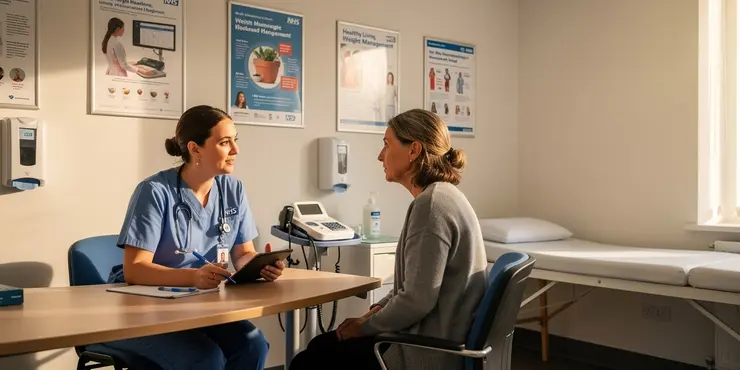
Can everyone use weight loss jabs as a method for weight loss?
Relevance: 43%
-

Is there a risk of hair loss with weight loss drugs?
Relevance: 42%
-
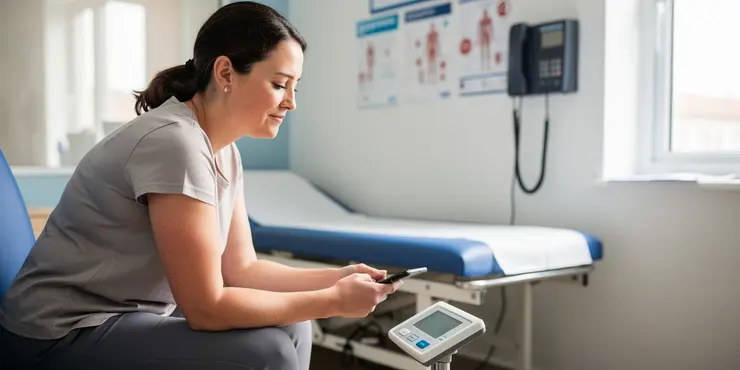
What are the signs that weight loss jabs are working?
Relevance: 41%
-

Are weight loss jabs effective for everyone?
Relevance: 40%
-
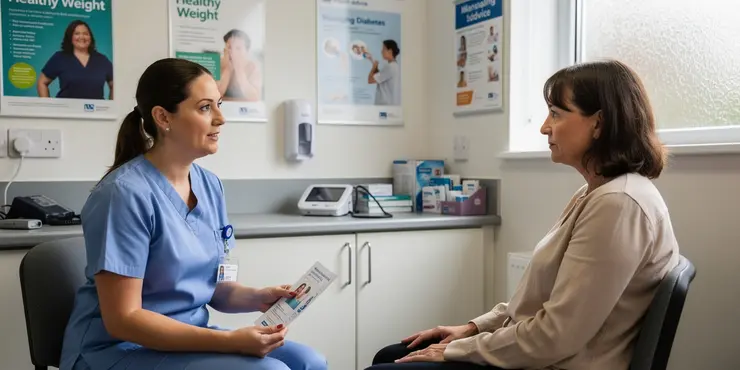
How do weight loss jabs work?
Relevance: 40%
-
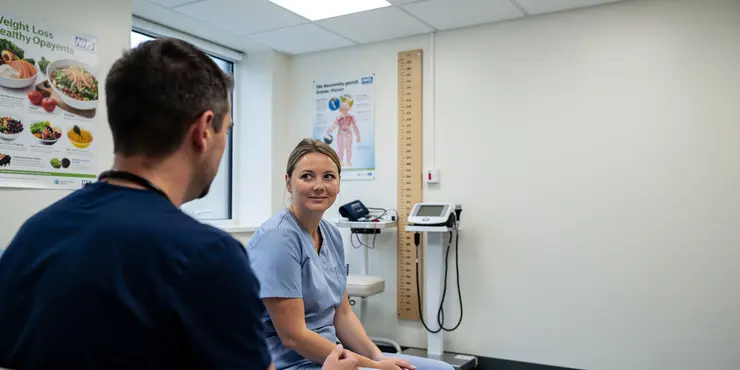
Do I need a prescription for weight loss jabs?
Relevance: 40%
-

Is there a risk of dependence on weight loss jabs?
Relevance: 40%
-

Fake weight loss drugs. How can I tell if weight loss drugs are fake?
Relevance: 40%
-

Are weight loss jabs covered by insurance?
Relevance: 40%
-
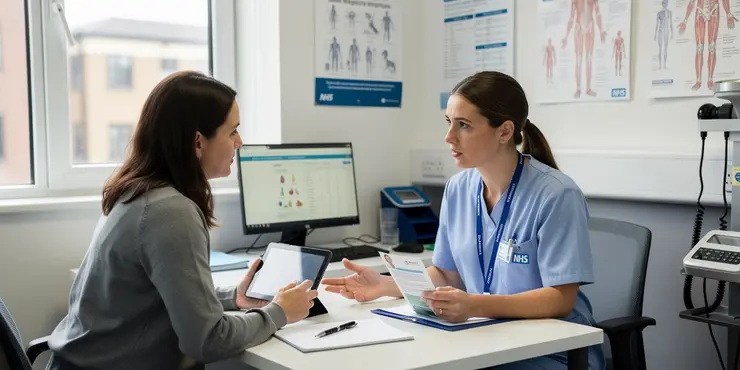
What side effects can I expect from weight loss drugs?
Relevance: 40%
-
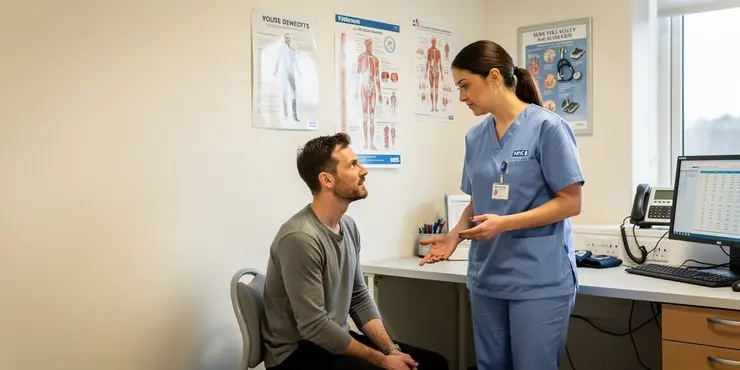
Can Ozempic be used for weight loss?
Relevance: 40%
-
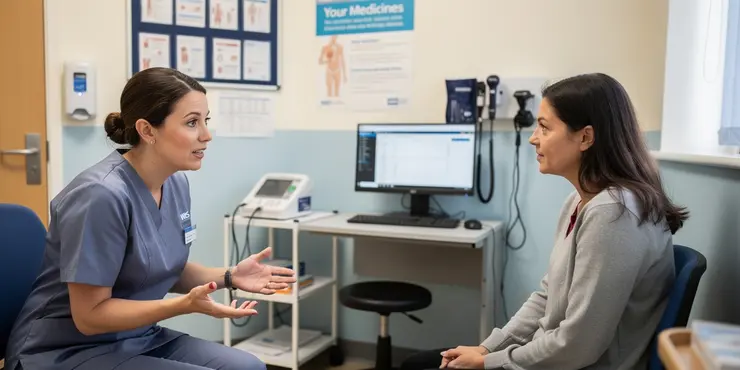
Will insurance cover Ozempic for weight loss?
Relevance: 40%
Understanding Sleep Apnea
Sleep apnea is a sleep disorder characterised by interruptions in breathing during sleep. These pauses in breathing can last from a few seconds to minutes and often occur multiple times an hour. The most common type is obstructive sleep apnea (OSA), which occurs when throat muscles intermittently relax and block the airway. This can lead to fragmented sleep and lower oxygen levels in the blood, resulting in daytime fatigue and other health complications.
The Link Between Weight and Sleep Apnea
There is a well-established connection between excess body weight and obstructive sleep apnea. Individuals who are overweight or obese tend to have more fat deposited around their necks, which can obstruct breathing. Additionally, excess weight can affect lung volume and affect the control of breathing during sleep. Studies have shown that people with a higher body mass index (BMI) are more likely to experience sleep apnea.
How Weight Loss Can Improve Sleep Apnea
Losing weight can significantly improve symptoms of sleep apnea. A reduction in body weight can decrease fat accumulation around the neck and decrease abdominal fat, which in turn reduces the pressure on the chest and lungs. This can lead to less airway obstruction during sleep. Research indicates that even a moderate reduction in weight can lead to a substantial improvement in the severity of OSA.
Moreover, weight loss can have a positive impact on overall health, including reducing the risk of cardiovascular disease, improving insulin sensitivity, and enhancing metabolic health, which are all beneficial for managing sleep apnea. For many patients, weight loss is considered a first-line treatment to manage the disorder.
Effective Strategies for Weight Loss
For individuals looking to lose weight to improve sleep apnea, adopting a balanced and sustainable approach is crucial. This includes a combination of dietary changes, increased physical activity, and behaviour modifications. A diet rich in fruits, vegetables, whole grains, and lean proteins, combined with regular exercise and a reduction in calorie intake, can help facilitate weight loss.
It may also be beneficial to seek guidance from health professionals such as dietitians or weight management specialists to create a personalised weight loss plan. In some cases, more intensive interventions, such as bariatric surgery, may be necessary for significant weight reduction and improvement in sleep apnea symptoms.
Conclusion
While weight loss is not a cure-all solution for everyone with sleep apnea, it can be an effective strategy for managing the condition, particularly in those who are overweight. By reducing excess weight, patients can experience improved breathing during sleep and enjoy better overall health. As always, it is important to consult with healthcare providers to determine the most appropriate treatment options based on individual needs and circumstances.
Understanding Sleep Apnea
Sleep apnea is a problem where you stop breathing while you sleep. This can happen for a few seconds or even minutes. It can happen many times in one hour. The most common type is called obstructive sleep apnea (OSA). This happens when the muscles in your throat relax and block your airway. This can make your sleep not restful and lower the oxygen in your blood. As a result, you might feel very tired during the day and have other health problems.
The Link Between Weight and Sleep Apnea
Having extra weight is connected to obstructive sleep apnea. People who are overweight or obese have more fat around their necks, which can make it hard to breathe. Extra weight can also change how your lungs work and how you breathe while sleeping. Studies show that people with a higher body mass index (BMI) tend to have sleep apnea more often.
How Weight Loss Can Improve Sleep Apnea
Losing weight can help improve sleep apnea symptoms. If you lose weight, you can have less fat around your neck and belly. This can take pressure off your chest and lungs. When this happens, your airway can be less blocked while you sleep. Research shows that even losing a little weight can make sleep apnea much better.
Losing weight can also help your overall health. It can lower the risk of heart problems, help control blood sugar, and make your metabolism better. These are all good for managing sleep apnea. For many people, losing weight is the first step to treating sleep apnea.
Effective Strategies for Weight Loss
If you want to lose weight to help with sleep apnea, it's important to have a balanced plan. This means eating healthy foods, being more active, and changing some habits. Eating lots of fruits, vegetables, whole grains, and lean proteins can help. Exercising regularly and eating fewer calories can also help with weight loss.
It might be helpful to talk to health experts like dietitians. They can help create a personal weight loss plan. Sometimes, people might need stronger treatments, like surgery, to lose a lot of weight and help with sleep apnea.
Conclusion
Losing weight might not fix sleep apnea for everyone, but it can help a lot if you are overweight. By losing weight, you can breathe better at night and be healthier overall. Always talk to your doctor to find the best way to treat your sleep apnea based on your own needs.
Frequently Asked Questions
Can weight loss improve sleep apnea?
Yes, weight loss can significantly improve sleep apnea symptoms by reducing excess tissue in the throat that may be blocking the airway.
How does weight affect sleep apnea?
Excess weight, particularly in the upper body, can increase the likelihood of airway obstruction during sleep, causing or worsening sleep apnea.
What type of sleep apnea can be improved by weight loss?
Obstructive sleep apnea (OSA) is the type of sleep apnea that can be improved by weight loss, as it involves physical blockage of the airway.
How much weight loss is needed to improve sleep apnea?
Even a moderate weight loss of 5-10% can help improve the symptoms of sleep apnea, though greater weight loss may yield more significant benefits.
Are there studies supporting weight loss as a treatment for sleep apnea?
Yes, multiple studies have shown significant improvements in sleep apnea symptoms following weight loss interventions.
Will losing weight cure sleep apnea?
While weight loss can substantially reduce the severity of sleep apnea, it may not cure it entirely in all cases.
What role does body mass index (BMI) play in sleep apnea?
Higher BMI is a risk factor for obstructive sleep apnea, and reducing BMI through weight loss can help alleviate symptoms.
Is weight loss alone enough to treat sleep apnea?
Weight loss can be an effective treatment, but it is often recommended in combination with other treatments like CPAP therapy.
Why does losing weight improve sleep apnea?
Losing weight reduces fatty deposits in the neck and decreases inflammation, helping to keep the airway open during sleep.
Does weight loss improve oxygen levels during sleep?
Yes, weight loss can lead to better breathing and oxygenation during sleep, reducing symptoms of sleep apnea.
How does sleep apnea affect weight loss efforts?
Sleep apnea can disrupt sleep, leading to fatigue and weight gain, which in turn can make it harder to lose weight.
Can CPAP use assist with weight loss?
CPAP improves sleep quality, which can enhance energy levels and support weight loss efforts.
Are there specific weight loss programs for people with sleep apnea?
Some programs specifically address weight loss for those with sleep apnea, often focusing on nutrition, exercise, and behavioral changes.
Does losing abdominal fat improve sleep apnea?
Yes, reducing abdominal fat can help by lowering the pressure on the chest and improving breathing.
What lifestyle changes can help with both weight loss and sleep apnea?
Adopting a healthier diet, increasing physical activity, and improving sleep hygiene can assist with both conditions.
Can sleep apnea recur after successful weight loss?
There is a possibility of sleep apnea symptoms reoccurring if weight is regained or other risk factors develop.
How quickly can weight loss impact sleep apnea symptoms?
Some individuals may notice improvements relatively quickly, but the timeline can vary based on the amount of weight lost and other factors.
Does weight loss reduce snoring associated with sleep apnea?
Yes, losing weight can reduce the frequency and intensity of snoring associated with sleep apnea.
What are the best exercises for weight loss to help sleep apnea?
Cardiovascular exercises like walking, running, and swimming are effective for weight loss and can indirectly help reduce sleep apnea symptoms.
Can weight loss surgery improve sleep apnea?
Weight loss surgery (bariatric surgery) can result in significant weight loss and may lead to considerable improvements in sleep apnea severity.
Can losing weight help with sleep apnea?
Sleep apnea makes it hard to breathe when you sleep. It can make you wake up a lot at night. Losing weight might help you breathe better when you sleep.
If you want to lose weight, here are some things that might help:
- Eat healthy foods like fruits and vegetables.
- Exercise a little bit every day, like walking or playing outside.
- Talk to a doctor or a person who helps with health about ways to lose weight.
Try to get good sleep every night by going to bed at the same time and making your bedroom comfy. If you still have trouble, talk to a doctor about it.
Yes, losing weight can help you sleep better if you have sleep apnea. When you lose weight, there is less tissue in your throat that might be blocking your breathing.
How does weight affect sleep apnea?
Sleep apnea is a problem that makes it hard to breathe when you sleep. This can make you very tired.
If you have more weight, it can sometimes make sleep apnea worse. This is because extra fat around the neck can press on the airway and make it hard to breathe.
Losing weight might help make sleep apnea better for some people.
Tools and tips to help:
- Talk to a doctor if you think you have sleep apnea.
- Ask someone to help you track your sleep patterns.
- Try to be active and eat healthy foods.
- Use pillows to sleep on your side to keep airways open.
If you have extra weight, especially at the top of your body, it can make it harder to breathe when you sleep. This can cause something called sleep apnea or make it worse.
Which type of sleep apnea gets better if you lose weight?
Obstructive sleep apnea (OSA) is a sleep problem. It happens when something blocks your airway while you sleep. Losing weight can help make it better.
How much weight do you need to lose to help with sleep apnea?
Losing a little bit of weight can help you sleep better. If you lose just 5-10% of your body weight, it can help with sleep apnea. If you lose more weight, it might help even more.
Can losing weight help with sleep apnea?
Do doctors say that losing weight can help people who have sleep apnea? Sleep apnea makes it hard to breathe well during sleep. It can make you feel very sleepy during the day.
If you are thinking about losing weight to help with sleep apnea, talk to your doctor.
Sometimes, reading about sleep apnea can help you understand it better. Using a ruler or your finger to follow the words can make reading easier. Reading together with a family member or friend can also help you learn more.
Yes, many studies have shown that people who lose weight can feel much better if they have sleep apnea.
Can losing weight help fix sleep apnea?
If you lose weight, it might help with sleep apnea. Sleep apnea is when you stop breathing for a short time during sleep. Being too heavy can make sleep apnea worse. Losing some extra weight can sometimes help you breathe better when you sleep.
Here are some tips to help you:
- Eat healthy foods.
- Exercise a little each day. Walking or playing are good ways to start.
- Talk to your doctor for help and ideas.
Remember to ask an adult for help if you need to understand more. You can also use pictures and videos to learn about sleep apnea and staying healthy.
Losing weight can help make sleep apnea less serious. But it might not make it go away completely for everyone.
How does body weight affect sleep apnea?
Body weight can change how you breathe when you sleep.
If you weigh more, it might be harder to breathe well at night.
Using a breathing machine can help.
It is also good to talk to a doctor for advice.
Having a high BMI can cause problems with sleep. It can make you have trouble sleeping at night because it blocks your breathing. Losing weight can help you sleep better.
Can losing weight fix sleep apnea?
Sleep apnea is when you stop breathing for a short time while sleeping. It can make you feel tired. Losing weight can help some people with sleep apnea, but it might not fix it for everyone. It is important to talk to a doctor. They can help you find the best ways to treat sleep apnea.
If you need help reading, you can ask someone to read with you. You can also use audiobooks or text-to-speech apps to listen instead of reading. These tools can make reading easier.
Losing weight can help you feel better. But, it works well when you also use other things to help, like a CPAP machine.
Why does losing weight help with sleep problems?
When you lose weight, the fat in your neck gets smaller. This helps open up your throat so you can breathe better when you sleep.
Can losing weight help you breathe better when you sleep?
Losing weight can help you breathe better when you sleep. It can also help with a condition called sleep apnea, which makes it hard to breathe during sleep.
How does sleep apnea make it hard to lose weight?
Sleep apnea is a problem that makes it hard to breathe when you sleep. This might make it hard to lose weight. Getting good sleep can help you feel better and make it easier to lose weight. Try using helpful tools like breathing machines or talking to a doctor to get better sleep.
Sleep apnea can stop you from sleeping well. This can make you feel very tired and gain weight. Gaining weight can then make it harder to lose weight.
Can using a CPAP machine help you lose weight?
CPAP helps you sleep better. This can give you more energy and help you lose weight.
Can people with sleep apnea use special weight loss plans?
If you have sleep apnea, losing weight might help you feel better. There are special plans to help you lose weight safely. Here are some ideas:
- Talk to your doctor about a safe plan. They know what is best for you.
- Join a support group. It is easier to lose weight with friends.
- Use apps or websites to track your meals. This can help you eat the right amount.
- Try to be active every day. Walking is a good start.
- Remember to follow your sleep doctor's advice too.
Some programs help people with sleep apnea lose weight. These programs talk about eating better, exercising, and changing some habits.
Can losing belly fat help with sleep apnea?
If you have sleep apnea, losing extra weight around your belly can help you breathe better at night.
Talk to a doctor to get advice. You can also try watching your diet and exercising.
Using special pillows or a breathing machine can also support better sleep.
Yes, losing belly fat can help you breathe better because it takes pressure off your chest.
How can I lose weight and sleep better with simple changes?
Here are some easy ways to help you lose weight and sleep better:
- Eat healthy food: Try to eat more fruits and vegetables. Avoid sugary drinks and snacks.
- Move your body: Do some fun activities like walking, dancing, or playing. It helps to stay active every day.
- Go to bed at the same time: Try to go to bed and wake up at the same time every day. A routine helps you sleep better.
- Relax before bed: Do something calming like reading a story or listening to soft music.
You can also ask someone to help remind you of these tips. If you have questions, you can talk to a doctor.
Eating healthy foods, moving your body more, and getting better sleep can help a lot.
Can Sleep Apnea Come Back After Losing Weight?
Sometimes, sleep apnea can come back even if you have lost weight. It's important to talk to your doctor if you think you have sleep apnea again. They can help check and give you advice.
You can use tools like breathing machines or apps to help with sleep. Good sleep habits, like a regular sleep schedule, can help too.
If you gain weight again, or if other problems start, your sleep apnea symptoms might come back.
How fast can losing weight help with sleep apnea?
Some people might see changes fast, but it can be different for everyone. It depends on how much weight you lose and other things.
Can losing weight help with snoring from sleep apnea?
If you lose weight, you might snore less. This is especially true if you have sleep apnea.
Here are some ways to help:
- Eat healthy food.
- Exercise regularly.
- Talk to a doctor for advice.
- Use a white noise machine to help you sleep.
Remember, a doctor can help you find the best ways to stop snoring.
Yes, losing weight can help you snore less and not as loudly if you have sleep apnea.
What exercises help you lose weight and sleep better if you have sleep apnea?
Exercises that make your heart beat faster, like walking, running, and swimming, can help you lose weight. Losing weight can also help make sleep apnea better.
Can losing weight with surgery help you sleep better?
Weight loss surgery can help you lose a lot of weight. It can also make your sleep apnea much better.
Useful Links
This website offers general information and is not a substitute for professional advice.
Always seek guidance from qualified professionals.
If you have any medical concerns or need urgent help, contact a healthcare professional or emergency services immediately.
Some of this content was generated with AI assistance. We’ve done our best to keep it accurate, helpful, and human-friendly.
- Ergsy carfully checks the information in the videos we provide here.
- Videos shown by Youtube after a video has completed, have NOT been reviewed by ERGSY.
- To view, click the arrow in centre of video.
- Most of the videos you find here will have subtitles and/or closed captions available.
- You may need to turn these on, and choose your preferred language.
- Go to the video you'd like to watch.
- If closed captions (CC) are available, settings will be visible on the bottom right of the video player.
- To turn on Captions, click settings .
- To turn off Captions, click settings again.
More Items From Ergsy search
-

Can weight loss improve sleep apnea?
Relevance: 100%
-

What is sleep apnea?
Relevance: 79%
-

What is sleep apnoea?
Relevance: 78%
-

Is CPAP the only treatment for sleep apnea?
Relevance: 75%
-

Can sleep apnea be cured?
Relevance: 75%
-

How common is sleep apnea?
Relevance: 75%
-

What treatments are available for sleep apnea?
Relevance: 74%
-

Is snoring always a sign of sleep apnea?
Relevance: 71%
-

What is complex sleep apnea syndrome?
Relevance: 71%
-

What is complex sleep apnea syndrome?
Relevance: 69%
-

Why is sleep apnea dangerous?
Relevance: 69%
-

Can alcohol worsen sleep apnea?
Relevance: 69%
-

What causes obstructive sleep apnea?
Relevance: 68%
-

Can children have sleep apnea?
Relevance: 68%
-

What lifestyle changes can help manage sleep apnea?
Relevance: 68%
-

Does sleep apnea occur only in adults?
Relevance: 68%
-

What are common symptoms of sleep apnea?
Relevance: 67%
-

How is sleep apnea diagnosed?
Relevance: 67%
-

What should I do if I suspect I have sleep apnea?
Relevance: 67%
-

What are the main types of sleep apnea?
Relevance: 66%
-

What are risk factors for developing sleep apnea?
Relevance: 66%
-

Am I eligible to try the new sleep apnea chip?
Relevance: 61%
-

How does the new Sleep Apnea Chip work?
Relevance: 59%
-

Weight Loss Surgery
Relevance: 56%
-

Introduction to obstructive sleep apnoea
Relevance: 50%
-

Evidence-Based Interventions: snoring surgery in the absence of Obstructive Sleep Apnoea (OSA)
Relevance: 46%
-

Is insomnia a common side effect of weight loss drugs?
Relevance: 46%
-

What are common side effects of weight loss drugs?
Relevance: 44%
-

Can everyone use weight loss jabs as a method for weight loss?
Relevance: 43%
-

Is there a risk of hair loss with weight loss drugs?
Relevance: 42%
-

What are the signs that weight loss jabs are working?
Relevance: 41%
-

Are weight loss jabs effective for everyone?
Relevance: 40%
-

How do weight loss jabs work?
Relevance: 40%
-

Do I need a prescription for weight loss jabs?
Relevance: 40%
-

Is there a risk of dependence on weight loss jabs?
Relevance: 40%
-

Fake weight loss drugs. How can I tell if weight loss drugs are fake?
Relevance: 40%
-

Are weight loss jabs covered by insurance?
Relevance: 40%
-

What side effects can I expect from weight loss drugs?
Relevance: 40%
-

Can Ozempic be used for weight loss?
Relevance: 40%
-

Will insurance cover Ozempic for weight loss?
Relevance: 40%


